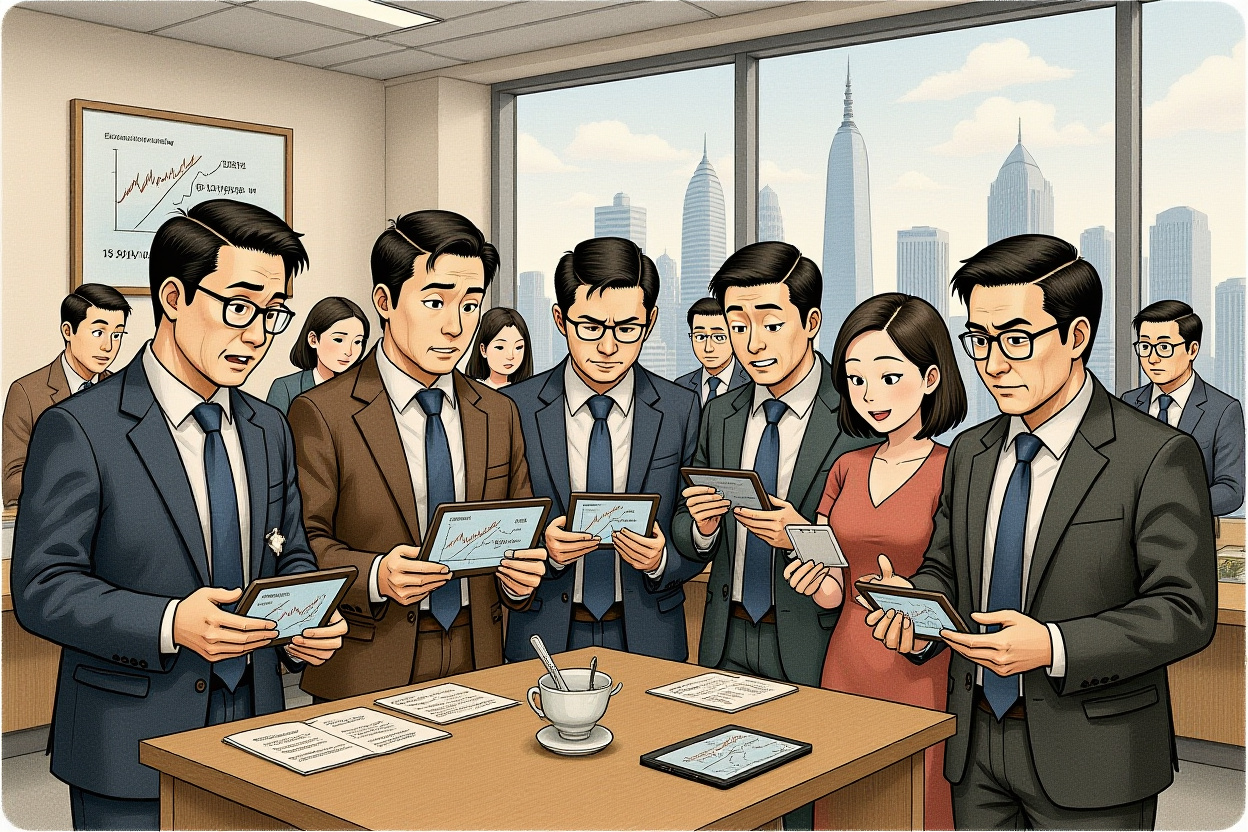Executive Summary
Key developments in the Shenlan Auto pricing controversy:
– Shenlan Auto introduced upgraded S09 models with better battery technology at identical price points just four months after launch, despite CEO Deng Chenghao’s (邓承浩) public price protection promise
– Existing owners accuse the company of de facto price reduction through specification improvements, causing immediate vehicle depreciation
– The company faces mounting customer complaints through official channels and social media platforms demanding compensation
– This incident compounds existing marketing controversies and occurs amid significant leadership changes at the automaker
– Shenlan continues to struggle with missed sales targets and substantial financial losses despite ambitious growth plans
Price Protection Promise Sparks Customer Backlash
The emerging controversy surrounding Shenlan Auto’s pricing strategy highlights growing tensions in China’s competitive electric vehicle market. Just four months after launching their flagship S09 model with a formal price protection promise, the company introduced enhanced versions with superior specifications at identical price points, triggering widespread customer dissatisfaction.
This development comes during a leadership transition at Shenlan Auto, with former Honor China CMO Jiang Hairong (姜海荣) taking over as president while previous CEO Deng Chenghao (邓承浩) assumes the chairman role. Instead of celebrating new leadership, the company faces mounting criticism from early adopters who feel betrayed by what they perceive as broken commitments.
The Broken Price Protection Promise
During the May launch event for the Shenlan S09, then-CEO Deng Chenghao explicitly committed to a price protection promise guaranteeing no price reductions for one year. This assurance specifically covered customers who placed orders before June 30, 2025, with protection extending through June 30, 2026. The price protection promise was designed to address consumer concerns about immediate depreciation following vehicle purchase, a common anxiety in China’s rapidly evolving EV market.
The company’s recent introduction of the S09 Super Long Range Super Charging edition at the same starting price of 239,900 yuan, but with significantly improved battery capacity and charging capabilities, has been interpreted by existing owners as a violation of this price protection promise. Customers argue that enhanced specifications at identical pricing effectively reduces the value of their existing vehicles, constituting a de facto price reduction despite the technical maintenance of listed prices.
Customer Response and Company Reaction
Dissatisfied owners have mobilized across multiple platforms to express their frustration with Shenlan’s apparent reversal on its price protection promise. The company’s official app has been flooded with complaints, while numerous customers have filed formal complaints through consumer protection platform Hei Mao Tou Su (黑猫投诉).
The core customer demands focus on compensation for perceived value loss, with specific requests including free battery upgrades, price difference refunds, or other forms of compensation to address the rapid depreciation caused by the specification improvements to new models. The intensity of customer reaction underscores the importance Chinese consumers place on price stability commitments in major purchase decisions.
Official Response and Technical Challenges
Shenlan customer service representatives have acknowledged receiving numerous complaints but indicate that no compensation solutions have been formally developed. Regarding the possibility of battery upgrades for existing owners, representatives cited significant technical challenges, noting that battery replacement involves numerous vehicle components and requires coordination with regulatory authorities.
The company’s response suggests awareness of customer concerns but limited immediate solutions. This situation places new president Jiang Hairong in a challenging position early in his tenure, requiring careful navigation of customer relations while maintaining the company’s market positioning and financial objectives.
Historical Context of Marketing Controversies
The current pricing controversy is not Shenlan’s first marketing challenge. The S09 model previously faced criticism in April 2025 for elevator advertisements that critics considered disparaging toward competitors Question (问界) and Li Auto (理想). The ads claimed superiority in space and intelligence features, drawing negative attention for aggressive comparative marketing.
In May 2025, the company faced additional backlash over in-vehicle advertising. Some Shenlan owners reported receiving purchase incentive advertisements on their vehicle infotainment systems without consent, raising concerns about distraction during operation and perceived disregard for existing customer relationships.
Leadership Response to Previous Issues
Then-CEO Deng Chenghao publicly apologized for the in-vehicle advertising incident, acknowledging personal responsibility for the initiative. He explained that the intention was to ensure existing owners were aware of available purchase benefits, but recognized the implementation was poorly received. This pattern of marketing missteps followed by executive apology has established a concerning precedent for the brand’s customer communication approach.
The company’s G318 model, launched in June 2024, also experienced significant price reductions within months of introduction, dropping by 30,000 yuan by February 2025. This earlier pricing volatility established consumer sensitivity to value protection issues, making the current S09 situation particularly damaging to brand trust.
Sales Performance and Financial Context
Beyond marketing controversies, Shenlan faces significant business challenges. The company has consistently missed annual sales targets despite ambitious goal-setting by leadership. In 2023, the company achieved only 67.4% of its 200,000 vehicle target, selling 134,800 units. The following year performance worsened, reaching just 54% of a 280,000 domestic target with 243,000 vehicles sold.
For 2025, initial targets of 500,000 vehicles have been substantially revised downward to 360,000 units amid disappointing performance. January-August 2025 sales reached 198,600 vehicles, representing just 55.17% of the revised target and indicating continued challenges in achieving market objectives.
Financial Performance and Future Projections
According to parent company Changan Automobile’s (长安汽车) financial disclosures, Shenlan Auto recorded a substantial net loss of 1.572 billion yuan in 2024 despite revenue of 37.225 billion yuan. While this represented improvement from 2023 losses, the company remains far from profitability.
At Changan’s 2024 shareholder meeting, board member and CFO Zhang Deyong (张德勇) projected that Shenlan might reach breakeven in 2025. However, current performance and market challenges suggest this optimism may be premature, particularly given the need for potential customer compensation programs and intensified market competition.
Market Implications and Industry Context
The Shenlan pricing controversy occurs against a backdrop of intense competition in China’s EV market, where frequent price adjustments have become common as manufacturers strive for market share. However, the specific issue of specification improvements at constant prices represents a newer challenge for consumer relations and value protection assurances.
Industry observers note that the situation highlights broader tensions between manufacturers’ need to remain competitive through product improvements and their obligations to early adopters who paid premium prices for initial versions. How companies manage this balance increasingly influences brand perception and customer loyalty in China’s crowded EV landscape.
Regulatory and Consumer Protection Considerations
While Chinese consumer protection laws don’t specifically address specification-based de facto price reductions, general provisions regarding false or misleading advertising could potentially apply if courts determine that price protection promises created reasonable consumer expectations about value retention. The situation demonstrates growing need for clearer industry standards around value protection commitments as EV technology continues rapid evolution.
The China Consumers Association (中国消费者协会) has increasingly focused on automotive industry practices, particularly regarding new energy vehicles. While no formal action has been announced regarding Shenlan’s situation, the volume of consumer complaints could attract regulatory attention if unresolved.
Leadership Challenges and Strategic Direction
The appointment of Jiang Hairong from Honor represents an attempt to strengthen Shenlan’s marketing capabilities following previous controversies. His experience in consumer electronics marketing is presumably valued for navigating China’s technology-driven automotive market. However, the immediate challenge of addressing customer dissatisfaction with the price protection promise issues presents a difficult inaugural test.
Former CEO Deng Chenghao’s move to chairman maintains his influence over strategic direction while bringing marketing expertise to the president role. This leadership structure will be tested by the need to balance aggressive growth targets with sustainable customer relationships and brand development.
Broader Market Implications
The Shenlan situation offers important lessons for the entire Chinese EV industry regarding value protection commitments. As technology improvement accelerates, manufacturers must carefully consider how product enhancements might affect early adopters and develop transparent policies for managing customer expectations around value retention.
International investors monitoring Chinese EV manufacturers should note the potential financial implications of customer compensation programs and the brand damage from perceived broken promises. These factors increasingly influence competitive positioning in a market where consumer trust represents significant intangible value.
Investment Considerations
For institutional investors and analysts, the situation highlights the importance of scrutinizing manufacturer policies regarding price protection and customer relations. Companies that manage these relationships effectively may develop stronger brand loyalty and more stable pricing power, while those that mishandle such situations risk erosion of market position and financial performance.
The incident also underscores the challenges facing second-tier EV manufacturers in China’s increasingly competitive market. With industry leaders like BYD maintaining strong positions, companies like Shenlan face pressure to accelerate growth while managing financial sustainability—a difficult balance that sometimes produces controversial decisions.
Looking Forward: Resolution and Recovery
Shenlan’s new leadership faces critical decisions regarding customer compensation and communication strategy. A transparent, fair approach to addressing owner concerns could help repair brand reputation, while inadequate response risks further erosion of consumer trust and market position.
The company’s ability to navigate this challenge while progressing toward sales targets and financial sustainability will test the effectiveness of its leadership transition and strategic direction. How Shenlan handles the price protection promise controversy may establish important precedents for industry practices regarding product improvements and customer value protection.
Market participants should monitor Shenlan’s official communications and customer relations initiatives for indications of the company’s approach to resolving current tensions. Additionally, the situation may influence how other manufacturers structure and communicate value protection commitments in this rapidly evolving market segment.
For sophisticated investors and industry professionals, the developments at Shenlan represent a case study in managing the intersection of technological progress, customer relations, and competitive positioning in China’s dynamic EV market. The outcome will provide valuable insights into sustainable business practices in this high-growth but challenging industry segment.




